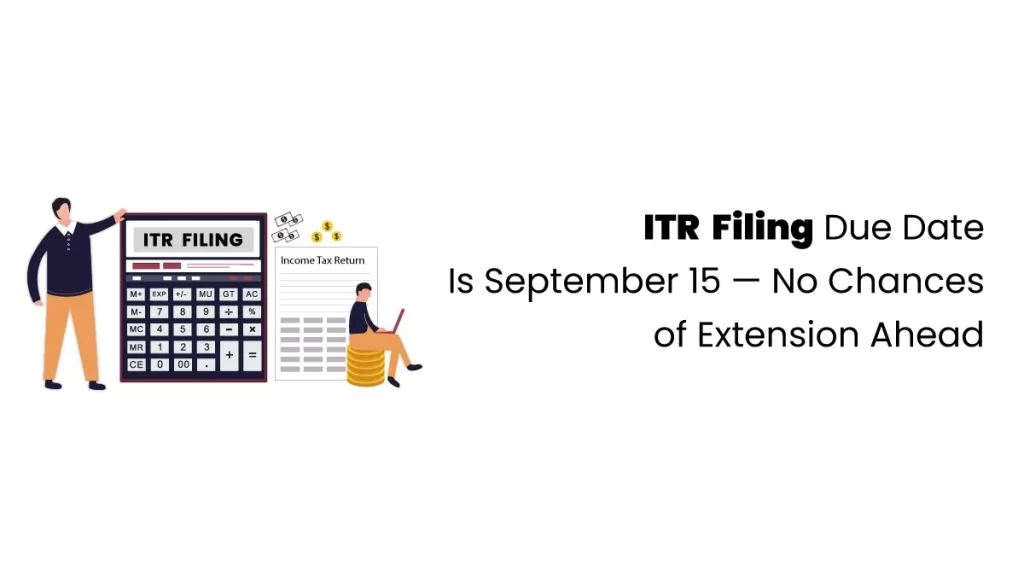
The Income Tax Return (ITR) filing deadline for FY 2024–25 (AY 2025–26) is now September 15, 2025, and this is an essential date for every taxpayer. Individuals and businesses whose accounts do not require an audit must meet this deadline to fulfil all compliance obligations within a financial year and stay compliant.
Why No Further Extension is Expected
The original ITR filing deadline was July 31, 2025; however, due to delays in collecting Form 16 and TDS details from various parties involved in ITR filing, an extension of 45 days has been granted, allowing taxpayers more time for preparation and submission of their returns.
As significant extensions were already granted, the Finance Ministry indicated this may be its final deadline for filing returns. Filing was also made simpler through pre-filled ITR forms, Aadhaar-based OTP verification and faster online utilities – thus eliminating excuses for delay and lessening further extensions.
Why Timely Filing Matters
Filing your ITR early has many benefits. Early filing can save you from incurring late fees or additional interest, plus faster refunds from the tax department. An ITR serves as official proof of income when applying for loans, credit cards or visas – plus it relieves stress during last-minute rushes! Furthermore, filing on time makes the process even simpler with pre-filled details, online payment systems, and Aadhaar-OTP verification, making the filing process faster than ever.

Penalties for Delay
Missing the September 15 ITR Filing deadline can be costly. Here’s what you should know:
- Late Filing Fee: A penalty of ₹5,000 will be charged if you file after the due date. For taxpayers with income up to ₹5 lakh, the penalty is reduced to ₹1,000.
- Interest Charges: Under Section 234A, interest at 1% per month applies on any outstanding tax amount until the date of filing.
- Loss of Certain Benefits: Filing past the deadline could limit your ability to carry forward certain losses (like business or capital losses ) for use in future years, which could negatively impact your tax planning strategies.
Who Falls Under the “Non-Audit” Category?
This deadline applies only to taxpayers who are not required to get their books of accounts audited. You fall into this category if you are:
- A salaried individual with no business income requires an audit.
- A small business owner whose turnover is below the audit limit (₹1 crore for business, ₹50 lakh for professionals, unless opting for presumptive schemes).
- A freelancer or consultant declaring income under presumptive taxation (Sections 44AD, 44ADA, 44AE) within prescribed limits.
If your income crosses audit limits or you run a company, your deadline will be later — usually October 31.
Key Takeaway
Due to government approval of an extension for taxpayers filing their return by September 15th 2025, September 15th should serve as their last filing deadline – starting early will mean less stress, faster refunds and no late filing penalties!
Consider it as an opportunity to swiftly complete tax compliance and focus on financial planning for the remainder of the year without anxiety, while also fulfilling your income tax obligations.

